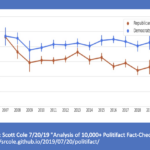Why is freedom of speech so important? Should freedom have limits? Can words hurt? Why does freedom matter so much? Let’s fully explore this. Ready?
Are people getting more sensitive than they used to be, or are they just starting to stand up and do something about it?
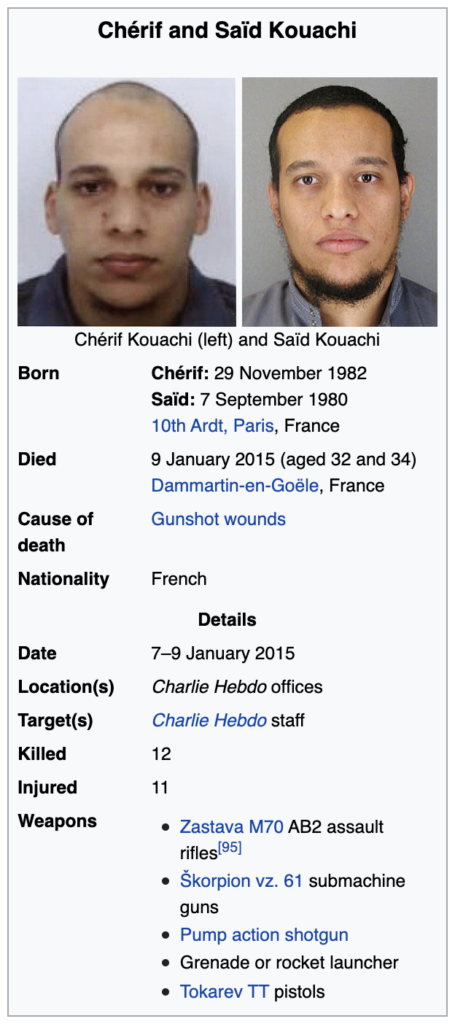
I think it’s a combination of both. When the Charlie Hebdo building was blown up, perhaps that was because certain people were fed up. Maybe they were emboldened by the fact that they knew bombs and bloodshed attracted media attention. Maybe we can blame the media for the rapid rise in terrorist attacks that characterized the late twentieth century and beyond, but the point from Charlie Hebdo was also taken at face value. Even though many innocent people were killed, and it was a horrible tragedy, the message was still made clear that religious sensitivity runs strong among certain Muslims, if not all of them.
If most of us knew that already, the people who did the bombing didn’t think so. It didn’t matter how confused or deluded the attackers were. Charlie Hebdo‘s insensitivity was proof to the attackers that not enough people understood how sacred the name of Muhammed actually was to them, at the least, if not all Muslims. Some things just aren’t funny to certain people. Free speech does not maximize awesomeness all by itself. If you think words can’t hurt, then what was the bombing?
The BLM riots had many of the same elements. An event of some sort signaled for a few, in the midst of a larger body of people, that they just weren’t going to take it any longer. As senseless as the burning and looting may have been, given a complicit media, it was a sure way to get attention. And there were a lot of people, black, white and other, who participated in the destruction.
There’s no question that injustices often happen, but most people recognize that these responses are injustices in and of themselves. Innocent people are being killed. What did any of them do to deserve this sort of response? It isn’t just vigilantism. It’s bad vigilantism. And if any of us continues to justify it with some rationale, where will we find an equilibrium? When will justice be satisfied by violence? Has it ever? How many lives has it brought back to families that have lost loved ones?
Escalating violence and injustice is one thing. Systemic causes that ignite it are another. Words can hurt much deeper than we realize, but let me be clear, I’m not just talking about words of hate or insensitivity. I’m talking about the damage caused by being misinformed. We share misinformation. Bad information is a systemic cause of violence in our world. We can be sincere and dangerously wrong at the same time.
If freedom of speech is a sacred value to us, we need to weigh the consequences. Should it be the highest value we hold? What if misinformation is behind going to war, say with a country like Iraq or Afghanistan? In Iraq, the CIA seemed to have good intel on weapons of mass destruction and that Osama bin Laden had a place to hide there. It turned out to be misinformed, maybe even disinformed. Thousands of people died because of bad intel, more than the number killed on 9/11.
What if the Bush administration knew full well that Saddam Hussein did not possess any weapons of mass destruction? What if the motive of going to war was not really protection of the Kurds, but to profit from weapons sales and a disaster clean up industry and cheap oil? What if there was a profitable connection between war-making powers and the intelligence community? Some people, exercising their right to free speech, were very vocal in their opposition to the war. They were labeled conspiracy theorists. As an example, what did the passage of time tell us about whether Michael Moore’s 2004 film, Fahrenheit 9/11 was accurate?
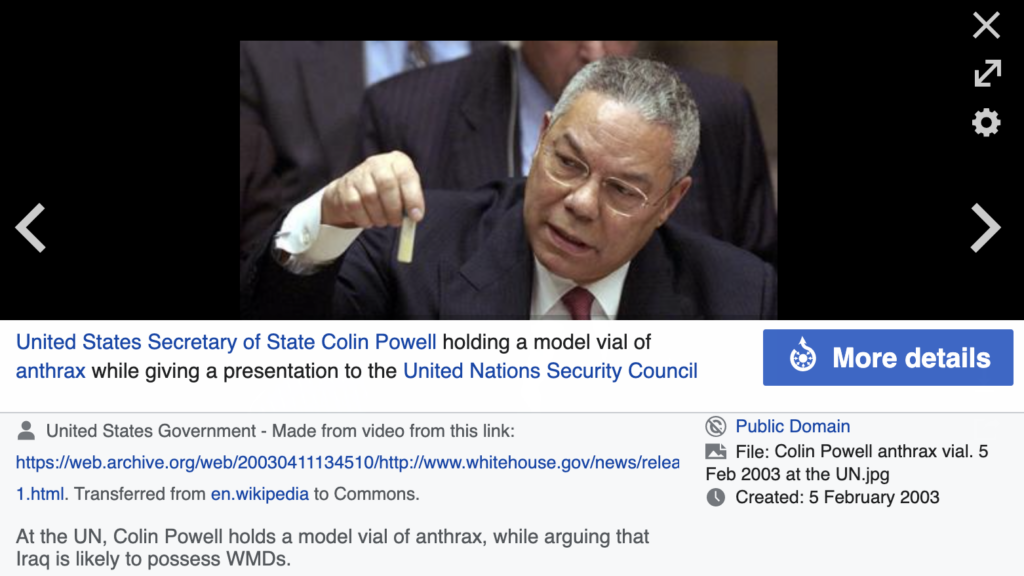
Moore’s case against Bush and Cheney required credible but unproven ideas. Exactly how much evidence and proof of a theory is required before we should have the right to promote an idea that might undermine our trust in the institutions of the Federal government? We might be tempted to say none at all. It’s our right to say whatever we think is true. It’s called the First Amendment. But rights and responsibilities are not the same thing. If we want a better world, we have a responsibility to tell the truth, not lie.
The maximization of awesomeness follows a balanced path. By balance, I don’t mean compromise. I mean considerate and complex. When we take a value and run on that one value endlessly, and when we lift that value up above all others, that diminishes our net awesomeness.
If you are a regular blog reader or podcast listener, I know I don’t have to tell you that, but I think that since the Pamalogy Society is likely to fund the CounterChecker, the ultimate fact-checking machine, and since the facts determined by that machine are likely to be used to control the flow of ideas and speech, it’s a subject we need to thoroughly and publicly examine.
Make no mistake, we are on the verge of a world that censors. The first ammendment is in the cross-hairs of those threatened by it.
I can’t just send out a plea to the world to be careful about what sort of information we curb, if anything at all. We need to stop thinking in problems and start thinking in solutions. Crying about violations of rights is not a solution.
At the heart of it, somehow, we need to see who makes any decision to suppress ideas. We need to agree that why they are making the decision is fair and reasonable. And any such decision better be backed up with accurate facts that show why it is not just better for society, but so important that we can all agree that the suppression of such an idea has to be limited. Are these decisions being made as part of a representative democratic process, or are they the utopian viewpoints of an elite few? Would majoritarianism be enough to justify it?
Thanks to the common passion a majority of journalists and teachers have about social justice, speaking out against hate speech is a pervasive trend, but there are hurtful extremes in every direction. It starts on the micro-level of training the population to be politically correct. A lot of free speech advocates think this is going too far. Who, for instance, has been teaching those with Down Syndrome to be offended?

My own brother had Down Syndrome. We loved him dearly. It took us years to teach him to count to thirteen playing hide and go seek. We learned to avoid using the word “retarded” somewhere around the 1980s. Prior to that the Association for Retarded Citizens, which we supported generously, had no problem with the term and none of the beneficiaries had complained. But now not only is the “R” word to be avoided, it is wrong to use the word “handicapped,” as well. Did you know that? We need to use the word “disabled” instead. Don’t be surprised if those blue parking spaces have a D instead of an H soon.
And by the way, “special needs” is no longer cool now either. Certain elites have suggested it’s condescending. In their view, we can’t call anyone special anymore without insulting them or misrepresenting them as needing something special. Make a note of it.
I’m going to assume that this sort of idea is not originating from those with Down Syndrome. Someone’s teaching them that they are hated by people who don’t use the right words. In the name of teaching respect, division and hatred wind up being taught. It all arises quite innocently. Digging deeper, I’m sure we’d find that these new designations weren’t designed with those with Down Syndrome in mind so much as those with other types of disabilities.
Still, I think you can see how the well-intended curbing of speech, can sometimes prove harmful – maybe not on the same grand scale as misinformation, and disinformation, but don’t overlook it.
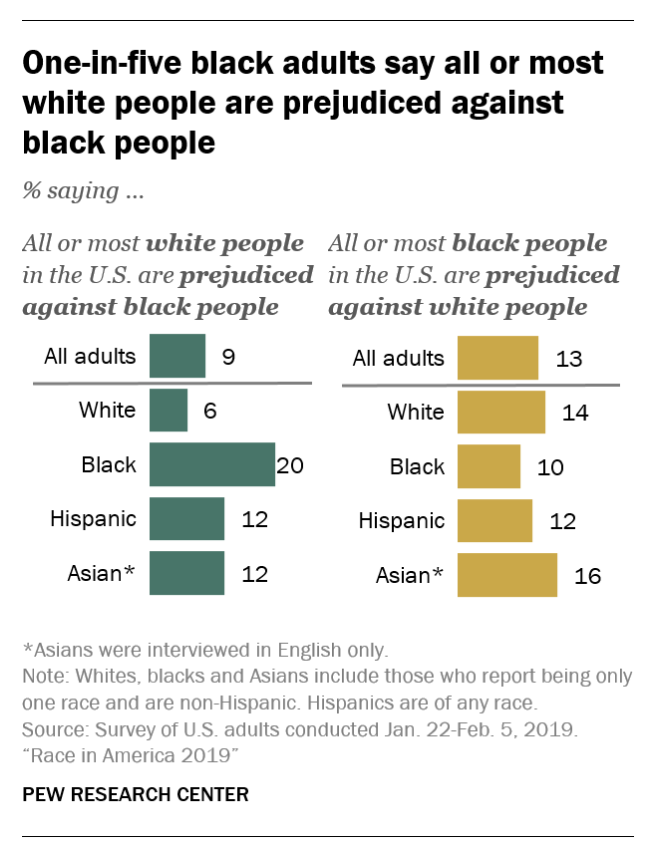
What about some other illustrations? Here’s one that’s seriously controversial. Do you believe that a majority of white people hate black people? On a scale of 0% to 100%, where would you put the percentage of white people who hate black people? If you ask a person of color, or a progressive, the number is likely to be much higher than if you ask a white person, or a conservative.
I’m not asking whether whites are more privileged, or whether enough has been done to help the historically disadvantaged. I’m not even talking about the use of racial slurs. I’m asking about hate itself. I’m looking for systemic causes of hatred.
What if outside of some number of laws that still needed to be fixed, and various inherent problems with policy, deep down inside, just about every white person was rooting for the success of every black person they met? What if it was true that every last one of them, Republican or Democrat, would be very upset if they saw any black person suffer from injustice?
I’m not saying this is true, but just imagine for a moment, that that was reality, but for political reasons, we were being taught to think otherwise? And now do the opposite. Imagine that almost every white person wishes the downfall and oppression of black people. Imagine they would do all they could to keep them down. It’s a horrible thought, I know. But imagine that was the truth. A recent poll shows 1:5 blacks thinks something like that about white people.
While most people would imagine that both of these extremes are remote from reality, let me ask you a question. Which of these two radically different worldviews, do you suppose could be manipulated through misinformation?
Think about it. If it had become true, what would it take to convince anyone that no such thing as prejudice and systemic racism existed any more? First, it would require the absence of it. In other words, it would have to be the truth that there was no such thing as racial hatred, or that it was barely measurable. Secondly, it would require that truth to pervade the air waves and social media. That is, it would require the absence of misinformation and disinformation regarding it, so that people would have the chance to know that it was true.
But would that even be possible? To be sure, there are many who believe that very few white people actually hate black people. There are many families, my own being one of them, in which not a single member ever uttered a racial slur. According to a 2019 Pew research poll, this applies to approximately 14% of white families like mine. Most Trump supporters believe that the problem of white supremacism is grossly and deliberately exaggerated for political reasons in order to foment anti-Trump rage.
Whether one is a racism denier, or a racism social justice warrior, two very different versions of reality exist here.
But imagine if racism was truly non-existent. Just imagine. Which worldview would be harder to convey through social media and television? Would Democrats and progressive media suddenly admit it didn’t exist? Or would they continue to amplify any problem they found in order to foment rage sufficient to get their preferred political candidates elected?
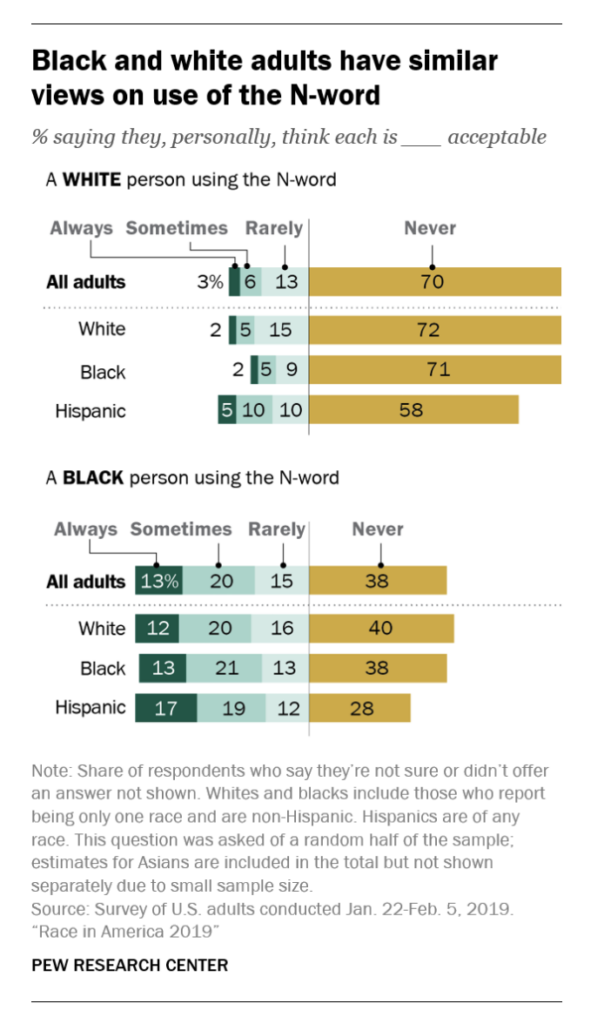
I don’t know where we are on the scale of 0-100% racism. Just to keep you guessing, I’ve included some polling information from a 2019 study by Pew Research on my blogcast transcript. Look it up there. What I can tell you, is that if racism actually didn’t exist, the only way you would know that is through your own personal experience. It wouldn’t be because the media told you. If they said all racism was gone, but you saw it yourself, you would’t believe them. And if they continued to say it was there, but you didn’t see it yourself, you still wouldn’t believe them.
I’m saying all this because the Aspen Commission’s 80 page report is filled with messages about racially motivated misinformation, and I’m not sure how to understand what it is saying. I promised I would elaborate more on the work of this commission. I agree with the report in many ways, but its vagueness about hate sort of loses me.
Hatred and misinformation, and disinformation are all enemies of the state. That much is unquestionable. There is no doubt that these things, that the report collectively refers to as “information disorder” are harmful. They detract from our best potential and can hurt badly. But assumptions about hatred can actually be forms of mis and disinformation themselves.
Here are some realistic questions to ask yourself: are Trump supporters really white supremacists? Are BLM supporters really rioters? What if there was actually very little real white supremacism anywhere to be found among Trump supporters, but it was mostly in the minds of journalists who had been taught that there was? What if BLM riots had been exaggerated by the press? What if BLM and Antifa really were “mostly peaceful protesters” as many of those same journalists reported?
BLM is a classic example. Eliminating hatred is something almost all of us would like, but we don’t agree on how to do it. When the cure causes more damage than the disease, we need to re-assess our response. The rioting of a few ruins the intentions of the majority.
Identifying hatred accurately is a critical task for a healthy society but let’s find the right solutions. Tools like the CounterChecker and the Hatred Index will help accurately assess both the extent of these problems and the effectiveness of our remedies.
(If you don’t know, the Hatred Index is also listed on my things-to-create before I die list at JamesCarvin.com. Have you looked at my list? What’s on your list? Did you write your list down like I asked you to?)
But I digress. A common way to attempt to reduce hate is to regulate speech. Unfortunately, it is entirely possible that the regulation of speech itself could be identified as a systemic cause of the problem. And trying to curb it can backfire.
I’m not absolutely opposed to containing it. I just think we need to think about how. I may love my right to free speech as a cherished value earned by the blood of American revolutionaries. I may have even been known to say, “I hate what you say, but I’d die for your right to say it.” Nevertheless, I also love the freedom to dream of an America that maximizes its awesomeness – where people are kind, considerate and courteous to one another and they don’t foment riots with their disinformation campaigns, or capitalize on misunderstanding – repeating things without first investigating them, just because it is politically advantageous. You can see how the call to a better world might be a call to resist saying any and everything that comes along the path.
I’m talking about far more than kindness, consideration and courtesy here. I’m talking about forbearance, meekness and restraint. These values are really cool companions to freedom. They come together under the heading of wisdom. If freedom is the wind. Restraint is the sail that takes us to the best destinations freedom has available. Tolerance is essential, but wisdom may need to override it from time to time.
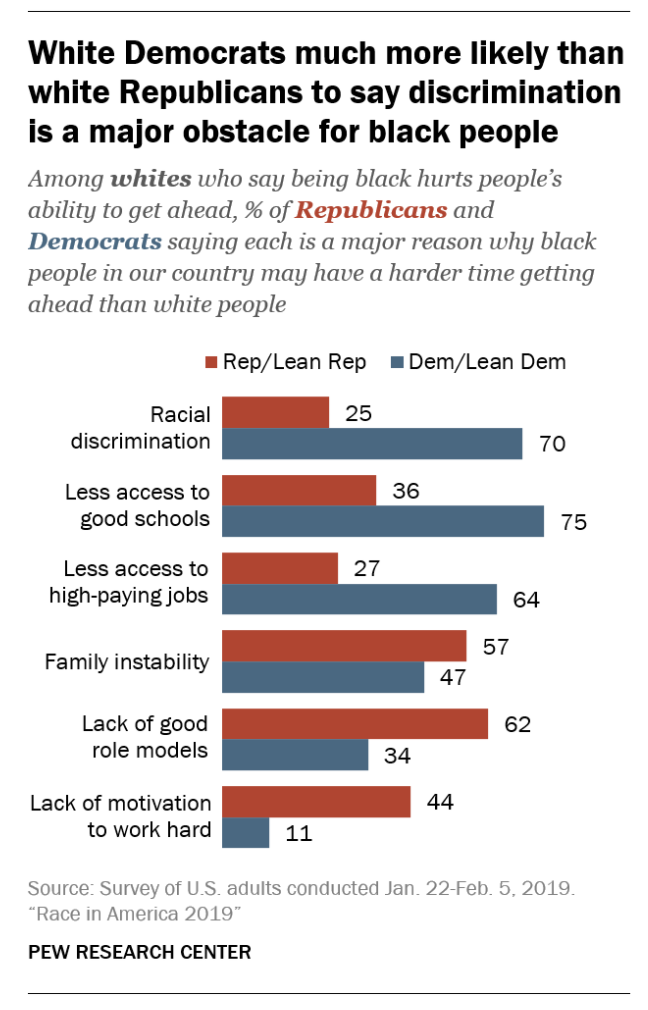
Courtesy is easy, but research – not so much. Restraint is a very big request and may require the assistance of professional researchers and technology. Have you ever tried to figure out with certainty that something was true? The need to check facts thoroughly is directed at everyone with a voice. That being the case, maybe a little help from fact-checking organizations, and from the social media algorithms that limit the spread of information can be seen as something other than censorship. Maybe it can be something that increases our freedom by limiting the ability others have of injuring us.
What if we are wrong? What if we make choices based on false assumptions? When Antifa attacks Trump supporters, supposing they are white supremacists, but almost none of them actually are, the hatred isn’t coming from the Trump supporters. It’s coming from Antifa. Antifa is operating on misinformation, literally hurting people.
When the FBI identifies white supremacism as a top terrorist threat in America, that sort of thing serves as a rationale for Antifa. It encourages their violence. Where is the FBI getting this information? Are some in their ranks the ones creating it? Would Chris Krebs or Chris Wray tell us if they knew it was true? Aren’t we allowed to ask? Isn’t journalism built on questioning? How do we manage accountability? How do we prevent abuse? Why must we assume that Homeland Security and the FBI and the NSA can be trusted? Why must we be labeled conspiracy theorists if we consider possibilities?
Where do conspiracy theories come from? Largely, they come from our desire to make sense of the world and we like it best when the things we already believe fit into that picture. We have an incredible ability as human beings, to connect dots that match our existing worldview. We look at clouds and see shapes we can identify. Even when every detail doesn’t match up, vague patterns become viable ideas.
We don’t need proof to believe what we do. Our ability to snap to judgments helps us recognize real danger when it occurs and may have contributed to our survival when we lived in jungles filled with lions, tigers, bears and rival tribes centuries ago. But the instinct is usually misleading. It’s a false alarm more often than not. If I were in an airplane and saw a cloud that looked like a trampoline, I’d perish if I jumped onto it. I’d better be aware of that fact. I’m not opposed to the technological suppression of conspiracy theories. I just want the certainty that comes with a system of checks and balances so that abuse becomes impossible.
Please understand my motivation here. Maybe all this spying on and suppression of Trump supporters is necessary and good. But if it’s all based on mis or disinformation, that would be a serious problem. What I am addressing, are systemic problems. What happens when our intelligence agencies are politicized?
What applies to the left applies to the right. Let’s say I voted for Donald Trump and think he actually won the 2020 election because I’m a Fox listener and grew to trust Sidney Powell. By golly, I’d be furious over the idea that the election was rigged and I’d have every reason to be talking about it. Likewise, if Rachel Maddow had convinced me that Trump was a Manchurian candidate chosen by Russians who interfered with our election and I thought that that interference had undermined my vote for Hillary Clinton, I might just call Trump “not my president” and raise hell about it. What’s more, I’d likely feel that anyone telling me I couldn’t express my opinion about such an outrage, needed to mind their own business and get out of my way. This is America. I’m allowed to scream bloody murder and no thought police have any right to stop me from expressing how I feel.
Fair?
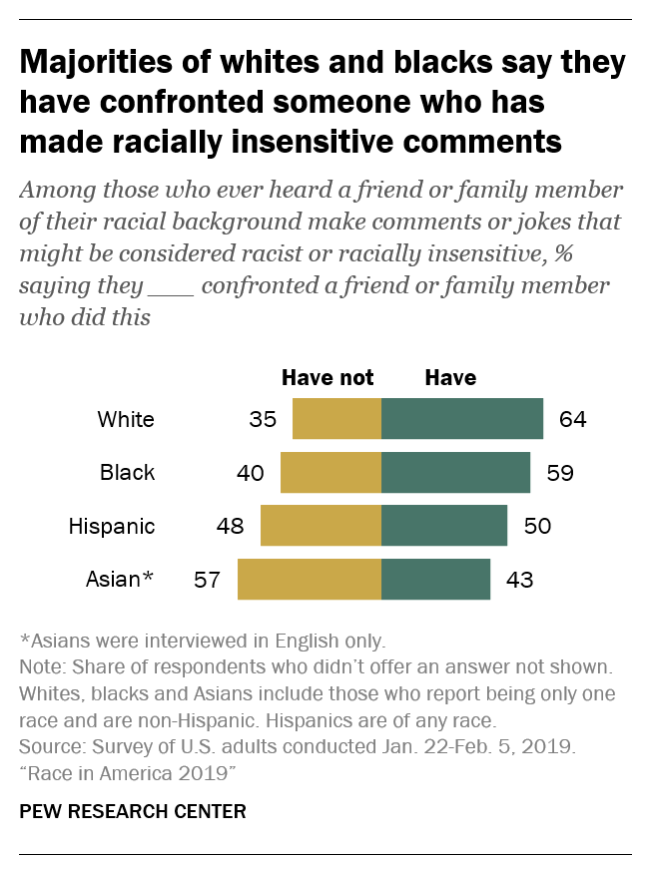
In fact, I don’t think that would be hate speech if I spoke loudly that way. I think that would be love speech. I would do it because I loved fairness in elections and because I was passionate about the things I believed were true. Yet, I might be entirely wrong. Whether it was a Maddow conspiracy theory or a Powell conspiracy theory, I would be angry enough to take action. And the first thing I would do is take my pent up frustration out on any social media I could get my hands on so I could harness the power of viral communication, to do something about it.
But now imagine that same social media blocking me or seeing me as a threat to national security just because I found this conspiracy theory credible enough to attempt to express my outrage. Would that fix the problem? Would that silence me? Not at all. It would add to my anger about it. Would such an action be a formula for peace?
You can see how the problem is complicated. It’s a lose/lose for policy makers. If they choose censorship, I get angry. If they don’t choose censorship, other people get angry with me because I’m out there spreading the misinformation. Now, if I’m misinformed, a better fact-checker, one that had more than self-proclaimed objectivity backing it up, would be a reasonable antidote.
Words can hurt. Words convince mobs to get angry about injustices. Sometimes they become violent. Darryl Brooks, a black man, took his SUV and injured 64 people, killing 4, in the mostly white town of Waukesha, WI at a recent Christmas parade, leaving some to question whether it was motivated by the outcome of the Kyle Rittenhouse trial. Rittenhouse, an alleged white supremacist, had been acquitted. If that was the motive, it would be both a hate crime and an act of terrorism. There was, in fact, no evidence of Kyle Rittenhouse being a white supremacist in any of his social media or elsewhere. People believed it because they were dot connectors. They saw patterns, however loose and inconsistent and forwarded memes.
Then again, neither is there any indisputable evidence showing what Brooks’ actual motivation was. But that didn’t stop Vaun L. Mayes, a self-described “community activist,” and “militant,” from going on Facebook Live at the scene of the crime, shortly after the tragedy, to suggest to his BLM activist followers that Brooks’ assault on the parade may have been the beginning of “the revolution.”
He knew that mob justice is on the ready. He knew it thrives on idealogical extremist trust and dot-connecting and he would be quick to agitate it. Some better evidence is all it would take to make a revolution official. All hate-based violence requires is the skillfully indoctrinating words of people like Vaun L. Mayes, Rachel Maddow and Sidney Powell, who no doubt, all believe that what they say is true. What is dangerous about it is that they have huge, highly gullible audiences, that want to believe them.
It’s those echo-chambers I was telling you about. Remember the echo- chambers?
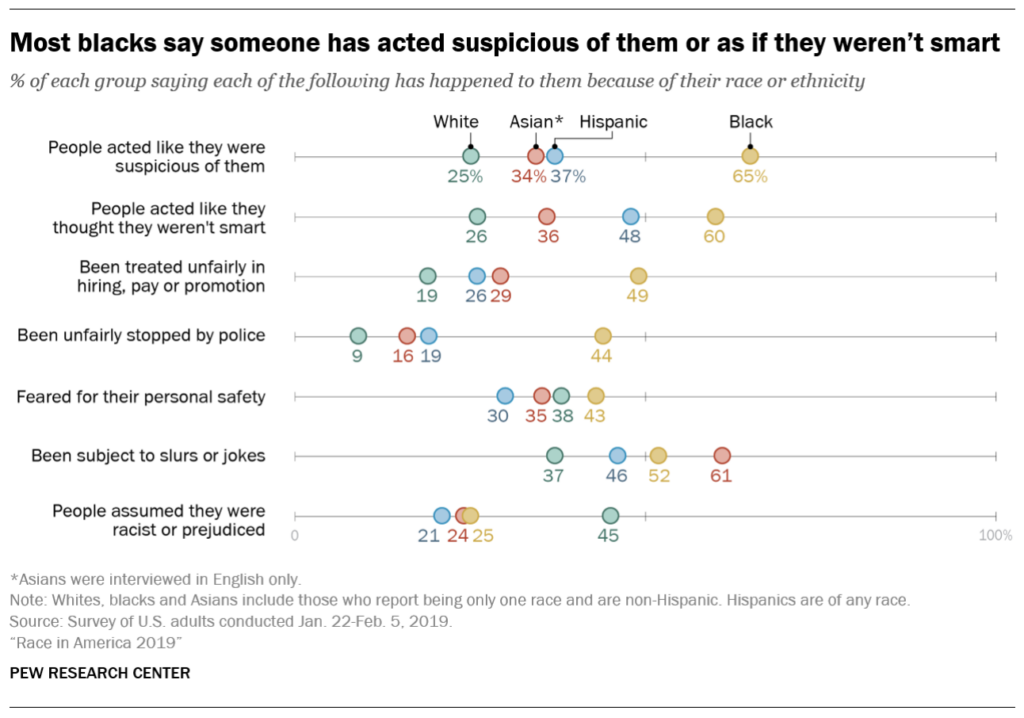
The mind is an amazing thing. It has a remarkable capacity to reduce what it sees in the world into just a few categories of ideas. What it sees through those lenses can be incredibly distorted. Just as some can only see near but not far, and others far but not near, some can only blame left and not right, and others blame right and not left in their mind’s eye. Some blame black. Others blame white. But reality isn’t simple like that. Reality matters.
If only there were bifocals for the mind’s eye.
Fortunately, the CounterChecker might serve that purpose. In my last update I was telling you how the fact-checking business works. Up until now it hasn’t been bifocal at all. I told you I would talk in some greater detail about a program associated with George Soros called Good Information, Inc., and about the work of the Aspen Institute.
Despite my criticisms, I want you to know that I fully support these efforts. Let’s face it. Hatred sucks. Misinformation escalates it. Disinformation is inexcusable in deliberately instigating it. Truth matters. If we had a better system of checks and balances, we could actually fix this. To lie may be free speech, but it is abuse of it. Similarly, to be wrong may be free speech, but it has the same damaging affect as a lie.
The Aspen report refers to the problem as “information disorder.” It admonishes us with these words: “we would expect information disorder to be a central concern for anyone in society who bears the title of ‘leader’.”
I agree 100%. One conservative critic of the report, Charles Ortel, complains that it is too open ended in defining what constitutes misinformation, saying it is “remarkably ill-defined.” He also objects to the commission’s aversion to “false equivalencies between lies and empirical fact in the pursuit of ‘objectivity’ and ‘both sides’.”
Let’s touch on that and then I’ll close. If something was known to be false, why would we want to give it an equal voice in media? Exactly what good would that accomplish? I think it’s perfectly fair to object to giving established falsehood equal air time. Where I disagree with Ortel, is that I think the right place for allowing dangerously dissenting voices, is in the re-evaluation of our assumptions themselves. It belongs in the truth machine as part of its vetting formula, not in the amplification devices that give us realities we can live by, rather than clouded theories.
To be fair, I think that Ortel, and conservatives generally, are not as concerned about this sort of vetting process conceptually, as they are about how it would likely be applied, and who is in control of it. If you look at the people behind the Aspen Institute, you may see it leaning leftward. Just remember, the CounterChecker is like an airlock between echo chambers. It doesn’t matter where the truth leads.
Given George Soros’ own history of supporting only left-leaning causes, and since he is among those funding it, I think it is fair to guess that Good Info, Inc. would be decidedly partisan about what it seeks to suppress. More so than the Aspen Institute. You can find out more about it at Goodinfo.US.
Now remember, I talked about requesting funds through Good Information, Inc. in my last episode. I think funding the CounterChecker would be a fair test to see if it was truly partisan. Would you like to see the CounterChecker go live? The project requires $1.4 million to get it up and running and it will take about 9 months to complete.
I also mentioned the Hatred Index. The Hatred Index would provide a fair measure of hatred according to a number of scales. Presently, the press generally goes to the Southern Poverty Law Center to monitor hatred. I think the Hatred Index would provide a much needed deeper look. We should tackle one project at a time, and do it well. So, for now, the CounterChecker deserves our sole focus.
The one thing we still need to sort out on fact-checking is the question of certainty. How certain of things do we need to be before we start calling them facts and rely on them for making decisions and forming policies?
In the coming blogs and podcasts, I’m going to cover that question very deeply. How Pamalogy prioritizes what it considers essential for the maximization of awesomeness begins with the question of certainty. Our discussion will take us to some unexpected places and I don’t want to brush over it too quickly, so I’m going to split it up into several digestible messages.
Before going, I want to say I really appreciate the time you are investing in listening to me. Thank you for joining me on the journey.
Ciao!
URL for sharing this transcript page: https://pamalogy.com/2021/12/06/when-words-hurt/
URL for sharing this podcast: https://player.captivate.fm/episode/cce4e528-d042-48c5-8a13-7ca647f898c2
URL for sharing just the audio file: https://podcasts.captivate.fm/media/7c9b4b2f-d498-4c79-94f0-e6045e4b49a6/episode3-wordshurt.mp3
Previous: Truth Machine
Up Next: Certainty

